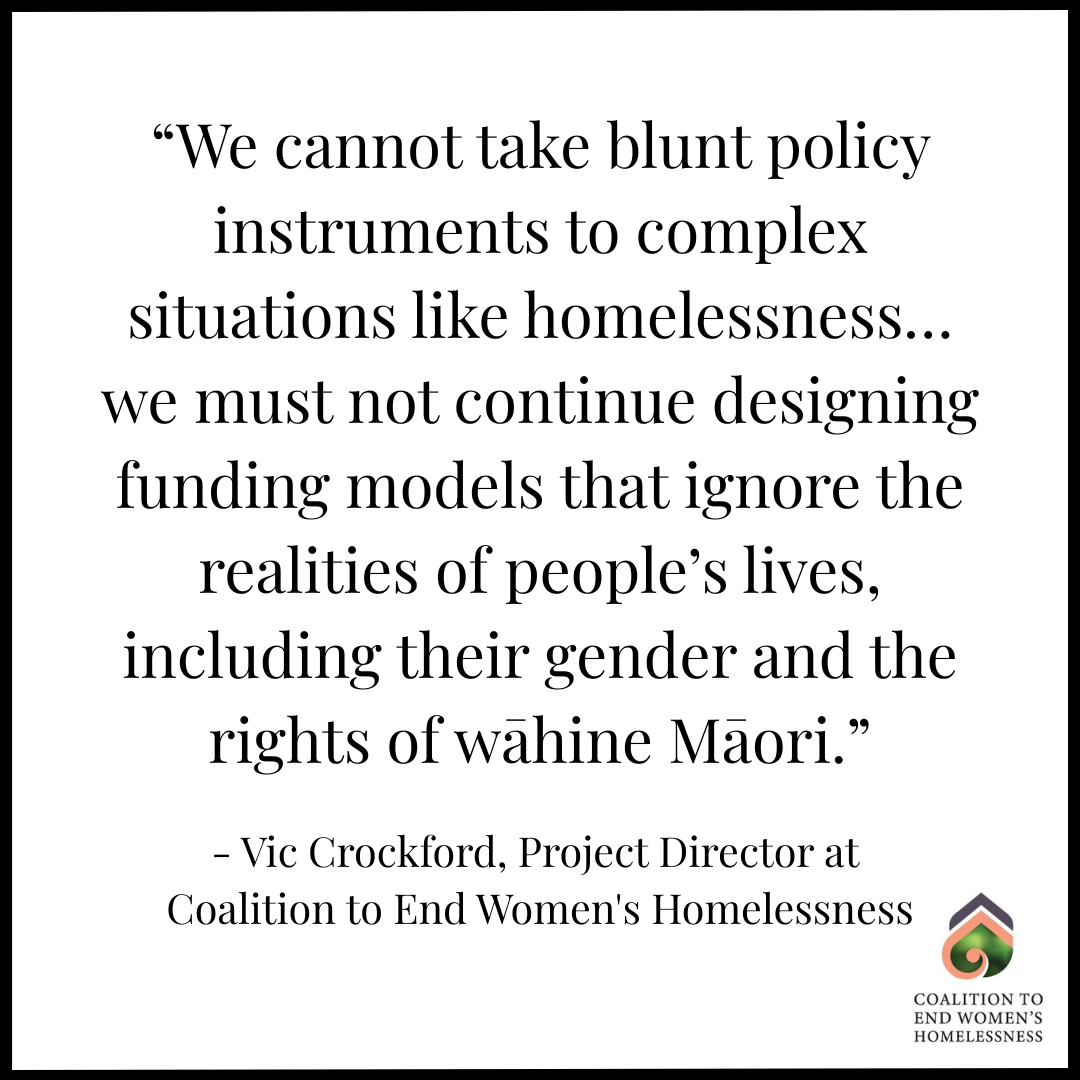The Post: Homeless women and the law of unintended consequences
In recognition of World Homeless Day, The Post features this powerful opinion piece by Vic Crockford, Project Director of the Coalition to End Women’s Homelessness (CEWH).
In her opinion piece, Vic says that marking World Homeless Day comes with challenges.
“What are we marking here? Our failure to uphold the basic human right to shelter? It seems like a grim proposition, but it does provide us with an inflection point,” she writes.
Housing deprivation across Aotearoa
Vic notes that in Aotearoa the ongoing cost-of-living pressures, combined with emergency housing policies, drive visible housing deprivation that spreads across our regions.
The recent government announcements ensuring more options for rough sleepers happen two weeks ago. Vic says that the announcement, and housing policies in general, are absent of any gender analysis, meaning the government leaves women out in the cold.
“57,000 [homeless] women, over one-third of whom are wāhine Māori, try to sleep at night, insecure about what the morning will bring for their living situation. Can they afford the rent? Will they be kicked out if not? Will they wake up ill from the state of the house and need hospitalisation? Will they, and their children, be safe from violence?” Vic asks.
Why women avoid sleeping rough
She explains that CEWH research shows that most homeless women do anything to avoid sleeping rough owing to safety concerns, which is why we hardly see any women on the streets or in the statistics.
“What we know is that these women are sleeping on couches, in cars, in uninhabitable housing and remaining in unsafe relationships—in order to have shelter and—crucially for the recent policy announcements—these women are in transitional housing.”
Data from Auckland shows there are 712 women in transitional housing there, compared with 452 men.
Transitional housing as a key support
“Transitional housing is not the long term answer to the housing crisis, but it is one of the best responses we have for women, as it enables more flexibility to housing providers to provide women-only options and the opportunity for wrap-around support to go along with the three months’ of housing stability that the contracts typically provide,” Vic says.
Concerns about recent policy changes
In her opinion piece, Vic says that when the government announces its policy to ‘rebalance’ funding toward transitional housing for rough sleepers, it effectively cuts support for providers working with women—including women with tamariki—the very people the policy is meant to help move out of motels.
“We cannot take blunt policy instruments to complex situations like homelessness, and we must not continue designing funding models that ignore the realities of people’s lives, including their gender, the rights and interests of wāhine Māori under Te Tiriti o Waitangi, as members of ethnic communities and their age,” Vic says.
Vic explains that while this is clearly not the Government’s intent, it highlights the harmful consequences of gender-blind housing policies—a problem that must be urgently addressed if we hope to make any real progress on the housing crisis.
Home is more than a structure
She says that home is not just about a structure or a contracting model. It is safety, security, and a place to be yourself.
As one woman who takes part in our research Ngā Ara ki te Kāinga describes it: “It’s sacred. Everyone in their home should be able to feel safe. Safe to be themselves.”
Read Vic’s opinion piece in The Post here

